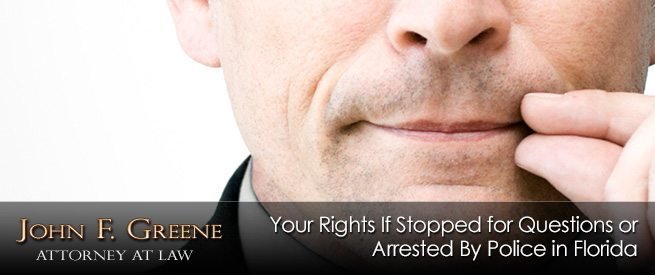
It is common practice for Destin attorneys to instruct their clients to remain quiet in court and during police interactions — and for good reason. Unfortunately, if you are arrested and charged with a crime in Northwest Florida, anything you say — even the most seemingly innocuous statements — can eventually be used against you.
Many Florida residents remain completely unaware of their rights, leaving them shockingly vulnerable in the event of arrest. The following are among the most important situations in which your right to remain silent may apply:
Discretionary Discussion
Technically, police officers are required to read alleged offenders their Miranda Rights in the event of arrest. Prior to this, however, they can obtain extensive information merely by carrying out conversations with unsuspecting individuals. Often, this tactic results in people admitting information freely — even when doing so is clearly not in their best interests.
The good news? You are under no obligation to conduct ‘casual’ conversations with police officers. Remain courteous, but insist that you meet with a lawyer prior to answering questions. By merely uttering the word ‘attorney,’ you can launch a variety of valuable constitutional protections, no matter how casual or serious the situation appears to be.
If you momentarily forget your rights and choose to chat with officers, you still have the opportunity to bring your discussion to a close and refuse to converse further until you speak with an attorney.
Detention
What happens if, instead of being asked to speak freely with police officers, you are detained or otherwise held in custody? This situation can occur even without an arrest. For example, you may be required to remain in a police car briefly while law enforcement officials handle field details or other urgent matters. Likewise, you may not be immediately allowed to leave if you are involved in a vehicle stop.
If you are detained, but not arrested, you are not required to answer questions fielded by police officers. Do not be intimidated into speaking up. As always, remain courteous until you are released — and don’t hesitate to request assistance from your attorney.
Arrest
In the real world, arrests don’t always look quite like they do on television. If you are arrested, you may not immediately be read your Miranda Rights. At the point of official interrogation, however, these rights need to be conveyed clearly for evidence to prove admissible in court. During this time, you still enjoy the right to remain silent. As soon as you ask for an attorney, police officers will ideally halt interrogations, only resuming once you enjoy full legal representation.
If you gain just one takeaway from this article, it’s that you should always seek legal representation before discussing sensitive matters with police officers — even when the assistance of an attorney seems entirely unnecessary. The early presence of a trusted criminal lawyer could make all the difference in future legal proceedings.
If you are stopped by the police or arrested in Florida, you have the right to request legal representation. In such high-stakes situations, it’s important to seek the assistance of a trusted lawyer as soon as possible. Attorney John Greene can help. Get in touch today to learn more about his approach to criminal defense — and to discover how he can be of service when difficult situations arise.










